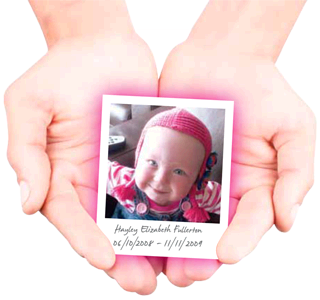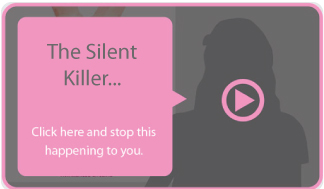Hi
I am Mum to 3 beautiful children. A little girl and twin boys. All my children were miracles, I know all children are, but mine were born after having ICSI fertility treatment which gave me a gift I thought I would never have – to be a Mum
DD’s pregnancy went fine and she was born naturally at 41 weeks weighing 8lb 12oz, so no one thought for a second I would have any issues carrying twins. However at 27 weeks I began to show signs of pre term labour. I knew something was going wrong with the pregnancy and that week I went to delivery suite 3 times before I was finally taken seriously. Unfortunately by then I was 3-4 cm dilated with bulging waters. They immediately gave me steroids to help the boy’s lungs, IV fluids and blue lighted me to a hospital 30 miles away which had NICU beds.
At St Mary’s Portsmouth we received exceptional care but despite all their efforts my sons were born at 28 weeks. Jack weighed just 2lb 11oz and Samuel 2lb 9oz. The Doctors and Nurses were excellent – kind, caring and would always ask us, as parents, how we thought our boys were. I remember saying to one of the Consultants how it was nice to be asked our views. His words will stick with me forever. He looked at me and said ‘’you are their Mum; you watch them day in and day out. You are our eyes and it’s usually parents who are the first to notice when their children aren’t well. That’s why we ask you and why we take your concerns seriously’’ They are words I feel every Doctor and Nurse should remember above anything else – we know our children! The team at St Mary’s had my total confidence and to this day I will always be so grateful to them for the care they gave not only to my sons, but to their big sister, myself and my Husband.
Once the boys got to 32 weeks we were moved to our local hospital so it would be easier for me to visit as they would be nearer to home. Both did well initially but then Sam became ill. He began to have desaturations and apnoeas and his abdomen became distended. He was diagnosed with Necrotising Entracolitis, a life threatening infection which affects the bowel. He was moved from the Nursery to their HDU and put onto CPAP to help him breath. He looked awful and as I sat there watching him I counted his respiration rate. He was only taking between 8-10 breaths a minute, frighteningly slow for a neonate, and was having more and more apnoeas. A doctor came to review him but despite my concerns she refused to call the Anaesthetist to see my son. Sam was pale, mottled, not breathing adequately and without doubt was near to having a respiratory arrest, but still she refused to call. I pleaded with the nurses to overrule the doctor but they refused, even though they knew I was right. They told me we had to wait for the Consultant. Thankfully he arrived shortly after, took one look at Sam and immediately called the crash team. Sam was intubated, ventilated and moved to London by a neonatal retrieval team, who were superb!
However the worry continued at the new unit. He had been doing really well, so I went for a break. When I came back in I looked at his ventilator and his colour and noticed he looked blue and that in the space of 4 hours his oxygen requirements had gone from 21% to 60%. His saturations were poor and after suctioning him his saturations took forever to come back up to normal. I questioned the Nurse looking after him and she said he just ‘needed more oxygen’ It turned out she had told no one about the deterioration. I then asked her for a review which bought the Nurse in Charge of the unit over us as the other Nurse was beginning to get flustered and I was getting stressed. I explained again why I was concerned but she dismissed me saying he was a very poorly baby. I explained that I knew he was poorly but this deterioration was swift and that the chances were it was due to an event rather than a gradual deterioration. Finally, after me forcing the issue, they reluctantly agreed to do a chest x-ray. But I was made to feel that I was being demanding. The CXR showed his ET tube (breathing tube) had slipped down his right main bronchus resulting in only one lung being ventilated. Once the tube was replaced he slowly improved and went back to needing only 21% oxygen. A simple X-ray was all it took. It should not have taken me shouting at them for this to be done…
After that incident I then felt unable to leave his bedside as I felt junior nurses weren’t being supported adequately and issues weren’t being bought to the medical team’s attention and acted on. The way parents were treated was awful and they showed little compassion towards us or our babies. For the first time in my life I was ashamed of my own profession. I am actually a trained Intensive care nurse with nearly 20 years experience. My husband still believes to this day that had I not been there, with my knowledge, to fight for Sam, we would only have taken one baby home from hospital.
I do need to say that most of the care my son’s received from the NHS during their first year of life was amazing. Working in the NHS means I know how stretched staff are and how understaffed wards are. It is not easy and mostly staff do a good job under difficult circumstances. However the cracks showed when Sam deteriorated. Doctors and Nurses didn’t listen. No one wanted to take the lead and deal with the issues before them and Nurses were too intimidated to go above the Doctors head and call for help themselves. It is a fact that most cardiac arrests in hospital are totally predictable and few come out of the blue. If deterioration is picked up early then the patient’s chance of survival improves no end – that is a fact! If you leave someone to become critically ill or arrest before you act the odds are stacked against them ever leaving hospital. So why do we seem to need to wait to act instead of being proactive?
Sadly in my job I see these situations happen with adults far too often. It frightens me that clinical observations are not acted on or even not taken and preventable deterioration of patients is not picked up quickly enough and treated. We have been asking for a Medical Emergency Team for a long time where I work, but no one seems keen, probably due to financial implications. Yet the facts are these teams save lives and they also save money by reducing the pressure on intensive care beds.
We need to look at ward staffing levels. It’s a fact that patient are living longer and have far more co-morbidities than they did 20-30 years ago. People smoke, drink too much and are overweight, have issues with diabetes, respiratory diseases and coronary artery disease. All this leads to a higher chance of them becoming critically ill and without doubt ward staff look after far sicker patients on wards now that than I did when I did my training in the 1990’s. Yet we’re cutting back on essential staff and cutting budgets!
I also feel we need to look at the training of both Nurses and Doctors and the support that is available to them. Fact is if you are taken ill over a weekend or bank holiday you’re chances of survival reduce as Senior Consultants are often not in the hospital during these times, leaving more junior doctors unsupported. Surely this does not make sense and they should be on site seeing their patients and supporting their staff. With knowledge and more support the more junior Doctor will be able to look for the cause of deterioration and treat it quickly or get valuable advice and second opinion quickly. With better education and support the Nurse at the bedside will feel empowered and more able to go over the doctors head and seek a second opinion if issues aren’t being properly addressed. Sadly there is still far too much of a hierarchy, too much red tape and way too much politics in our hospitals today and it’s without doubt costing lives
Thankfully both my children survived and for that I will always be grateful, but I still feel angry about the issues we faced when Sam was so ill. I feel concern for those who don’t have the medical knowledge to know when something is wrong or not being dealt with properly. These people are vulnerable and are placing their trust and lives in our hands, we should not be letting them down.



Dear Julia
Thank you for your amazing story.
You have added so much more valuable details and have put a lot of energy and thought into it.
It is an intelligent, full rounded but also deeply personal.
This is the kind of story I was desperate to hear after Hayley died so I wouldn’t think I was mad or isolated. I have no doubt in my mind it will help many other people.
It really is a power story – I was really impressed by the quote from the consultant.
That is the stand out message I got.
Is it ok if I use this quote on the Heal-trust individual pages as well as the share a story please?
I hope the rest of the stories shared are half as good as yours.
Thanks again and take care,
All the best,
Paula